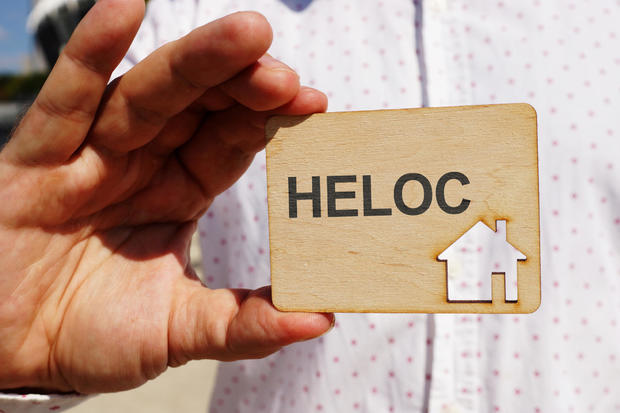Is a HELOC worth it?
Homeownership comes with a series of financial benefits from improving one's credit score to tax deductions and more. Homeowners with significant equity in their homes can also rely on their investment if they find themselves in need of a cash boost. This can take the form of a cash-out refinance, a reverse mortgage (for those 62 and older) or a home equity line of credit (HELOC).
The latter form lets owners access the existing equity in their home as a line of credit to pay back. This can be used for major household repairs, to pay down debt or any other way the homeowner sees fit. While HELOC rates vary, they're typically preferable to taking out a personal loan or credit card.
So is a HELOC worth it or should homeowners look elsewhere when they need cash? That's what we will explore in detail below. If you think you could benefit from taking out a HELOC then start exploring your options here now or use the table below to check your eligibility.
Is a HELOC worth it?
A HELOC can be a smart and effective way to access money that's locked up in your home's worth. Here are three reasons why a HELOC is worth it for you.
Low interest rates
If you need extra money then a HELOC may be a better way to get it than going the credit card or personal loan route. It's easy to see why. As of February 22, the average interest rate for a credit card was hovering around 24%. For personal loans, it was much lower but still came in at around 11%. But a HELOC at the same time was approximately 7%.
The best terms will be reserved for the borrowers with the best credit. It's also helpful to have a low debt-to-income ratio and the more overall equity you have in your home the better. But if you need money now the interest rate a HELOC can generally offer is worth it relative to some of the other popular credit options on the market.
Not sure what HELOC interest rate you'd qualify for? Plug in a few quick numbers here to find out or simply use the table below to find offers based on your zip code.
Flexible use
HELOCs allow you to use as much or as little of the amount you applied for. So if you took a HELOC for $10,000 but then realized you only needed half that amount then you will only owe what you used - not the full amount. You won't be mandated to take out all of the money at one time. This is especially helpful because with HELOCs you'll only be responsible for paying the interest on the money you actually used (not anything leftover). This can help save significant sums of money should you end up taking out more credit than you actually needed.
Interest may be tax deductible
Not all interest paid on a HELOC is tax deductible. But if you use the credit to make significant household repairs you may be able to write it off come tax season.
"Interest on home equity loans and lines of credit are deductible only if the borrowed funds are used to buy, build, or substantially improve the taxpayer's home that secures the loan," the IRS explains. "The loan must be secured by the taxpayer's main home or second home (qualified residence), and meet other requirements."
That said, you may only be able to deduct interest up to a certain amount so make sure to speak to your tax preparer or trusted financial adviser before accounting for this item when completing your return.
The bottom line
Homeowners in need of financial assistance should seriously consider turning to a HELOC to help out. This unique line of credit is generally worth it because the interest rate that accompanies it is typically lower than what one would get with a personal loan or credit card. It can also be used in a flexible fashion and owners will only be responsible for paying the interest on the money they actually used. That interest, up to a certain amount, may also be tax deductible.
Have more questions? Not sure what HELOC interest rate you'd qualify for? Plug in a few numbers here to find out now!




